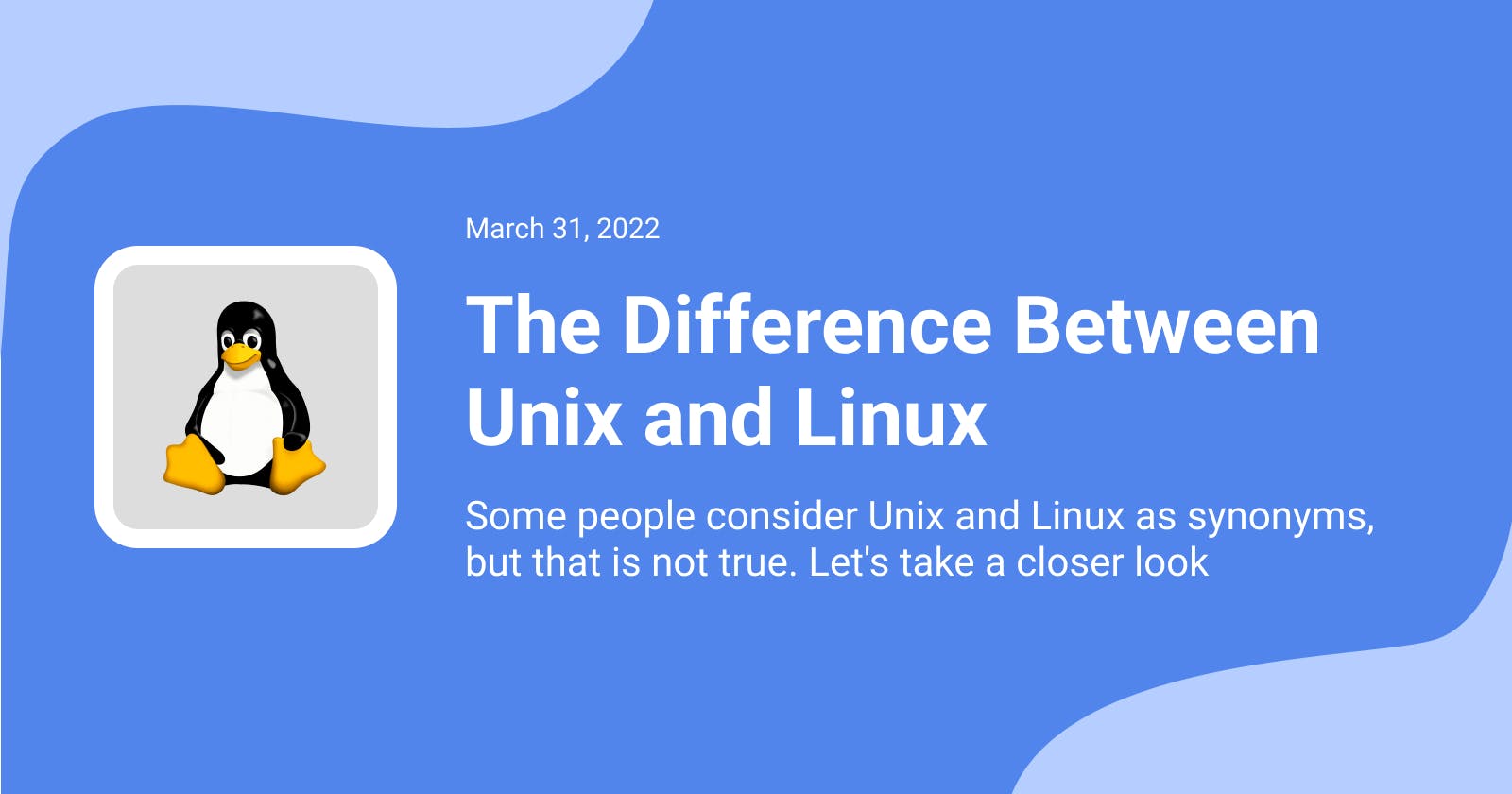The Difference Between Unix and Linux
Some people consider Unix and Linux as synonyms, but that is not true. Let's take a closer look.
Today, Linux is in great demand. You can see its use everywhere, on servers, desktops, smartphones, and even some electrical devices such as refrigerators. Some people consider Unix and Linux as synonyms, but that is not true. Let's take a closer look.
Unix
Before Linux and Windows, the computer world was dominated by Unix. Unix is a family of computer operating systems that derive from the original AT&T Unix (the mother OS as some people call it) that was invented in the '60s and over time has become a standard or certification. Only systems fully compliant with and certified to the Single UNIX Specification qualify as "Unix", others are called "Unix-like". For example, nowadays Mac OS is certified as UNIX certified while Linux is Unix-Like.
However, over time, Unix became less popular. The main problem with Unix was that it was very expensive. You needed expensive machinery, an expensive license, and an expensive administrator. We are talking about tens of thousands of dollars or euros a year, not the computer you buy as a student. This still applies to IBM AIX, HP-UX, and Sun Solaris, which are mostly used by large companies and organizations, although it would be cheaper for them to run everything on Linux.
Linux
Linux is a Unix-like operating system that behaves in a manner similar to a Unix system, although not necessarily conforming to or being certified to any version of the Single UNIX Specification. Technically, it is created from scratch, except for some parts where software providers gave away their code. The term Linux is applied to a number of open-source Unix-like operating systems based on the Linux kernel (the main component of a Linux operating system) known as distributions: Ubuntu, Debian, CentOS, Fedora, and so on.
Many operating systems were developed to be like Unix, but none have become as popular as Linux. Linux arose from the desire to have an affordable OS that would be cheap and could run on common hardware, like the average PC. One of the features was to make it "free" with the appropriate license: GNU. It is freely available, costs nothing to download and install, and can run on a cheap computer, take Raspberry Pi, for example. Using Linux as a user or admin is mostly the same as using Unix as the commands are very similar. If you have ever worked with a Linux and Mac OS terminal, you have probably noticed it.
We can say that asking about the differences between Unix and Linux is like asking about the differences between Mammals and Dogs. All dogs are mammals, but we can say that they are usually more suitable for pets than other mammals. This is not to say that other mammals, such as cats, cannot be excellent pets. Similarly, it would be fair to say that Linux is generally less expensive than Unix, but this does not preclude the existence of expensive Linux or free Unix distributions.
Key Features
| Linux | Unix |
| Linux is used everywhere, on servers, desktops, smartphones, and even some electrical devices such as refrigerators. | Unix is used on servers, workstations, and PCs. |
| Linux is an open-source operating system that is freely available to everyone. | Unix is an operating system that can be only used by its copyrighters. |
| Linux is open-source, it is developed by sharing and collaborating with developers from around the world. | Unix was developed by AT&T Labs, various commercial vendors, and non-profit organizations. |
| The term Linux is applied to a number of open-source Unix-like operating systems based on the Linux kernel (the main component of a Linux operating system) known as distributions: Ubuntu, Debian, CentOS, Fedora, and so on. | Unix is a family of computer operating systems that derive from the original AT&T Unix. Unix has three distributions IBM AIX, HP-UX, and Sun Solaris. Apple also uses Unix to create the OSX operating system. |
TL;DR
Unix and Linux are both operating systems, with Unix being an older and proprietary system, while Linux is an open-source system based on Unix.
I hope you found this information helpful, stay tuned for more content! :)

